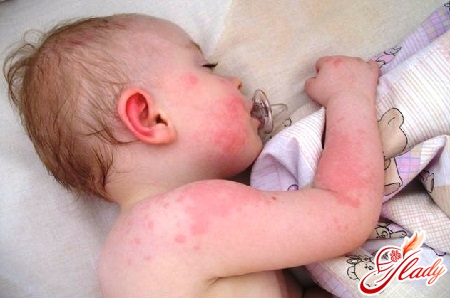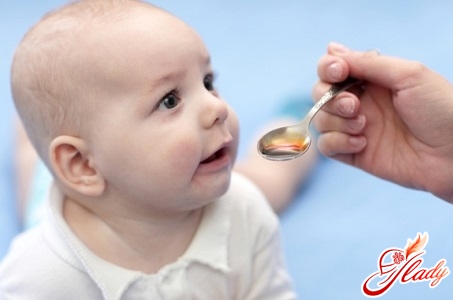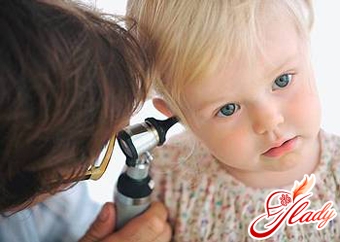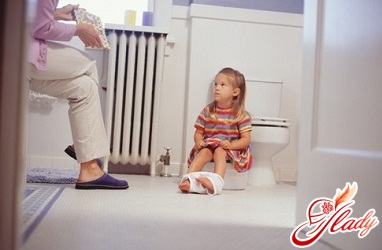
If only you could ask the stork to bringa healthy, strong baby at the right time in every sense of the word, every woman would do it without thinking. However, storks only carry babies home in fairy tales, and in modern reality, young mothers often face difficulties of various kinds after giving birth. One of these problems is an allergy, which can occur in a baby at the most inopportune moment and for the most inopportune reasons. The fact is that the body of a newborn baby is extremely susceptible to various harmful factors from the outside, and therefore every mother tries to protect her child with all her might, carefully selecting food and following a daily routine. But at the same time, neither the mother nor the pediatrician will be able to determine in advance what the baby may be allergic to in the future. After all, this medical "vice" cannot be fully controlled, since a person can live his whole life without even suspecting the presence of an allergy to certain factors. And this means that the problem of allergies in infants should be given special attention.
What we know about allergies
As you know, the human body grows and changes withthe moment of birth and up to about 25 years. This means that during all these years the body sort of gets to know itself from the inside, fights diseases, harmful environmental factors and, of course, allergens. The latter, as is commonly believed from a medical point of view, are a kind of catalyst, thanks to which the human immune system develops, strengthens and learns to resist the environment. However, mild symptoms (mild runny nose, cough) are not always a manifestation of such a fight. Often the body literally goes on the warpath with its allergy. The body of a newborn, as mentioned earlier, is more seriously susceptible to negative factors due to low resistance and a weak immune system. And if in an adult the symptoms of an allergy usually appear several hours or even days after contact with an allergen, then in a baby they can become noticeable after a few minutes.
Allergies or not: how to understand the problem?
However, quite often the picture has nothing to do with itcommon with a real allergy, although it looks quite alarming. It often happens that a baby develops small red pimples on the face and upper body. Inexperienced young mothers, as a rule, take them for an allergy, but in fact, these may just be hormonal rashes. What to do in this case and how soon to run to the doctor? Firstly, try not to panic too much, this is harmful to milk if you are breastfeeding your baby. Secondly, you should not limit your diet, since with hormonal rashes there is no serious need for this. The fact is that pimples, as a rule, go away on their own about two months after they appear. However, there is something that you should definitely not do in the case of such rashes - you cannot squeeze such pimples. By doing this, you can introduce an infection into the wound and harm the baby, since, as mentioned earlier, the immune system of infants is most susceptible to harmful influences. Also, quite often young mothers confuse allergies with a common cold. After all, both of these problems are usually accompanied by coughing, nasal congestion and prolonged sneezing. However, as in the case of hormonal acne, the treatment for these diagnoses is different.
How to identify a true allergy?
To begin with, it is worth noting that with any kindrashes and redness, you should still contact your pediatrician in order to avoid dangerous self-medication. If it turns out that the rash on your baby's body is hormonal in nature, a smart pediatrician will tell you about it and you can calmly go home, knowing that the pimples will probably go away on their own after a certain time. However, if the rash is allergic in nature, you should never neglect treatment. How then can you classify a real allergy on your own? Its symptomatic manifestations, as a rule, are more pronounced and are not limited to pimples. Thus, the skin can turn red, become dry and rough to the touch, as a result of which the baby will be bothered by constant itching of the skin. In addition, you may observe atypical green stool, as well as cold manifestations of allergies: runny nose, coughing and sneezing. All this, of course, will cause general anxiety to the child, he will sleep poorly and cry often. However, this list can be supplemented with other manifestations, because each baby is already a person, and therefore has his own individual organism.
Is diathesis as terrible as it is described?
There is probably not a single one todaymothers who have not encountered the concept of diathesis in a child. In the event of its appearance, most concerned mothers, wishing only the best for their child, begin to actively treat its manifestations. However, this is not quite the right decision. After all, diathesis, or more precisely allergic diathesis, is rather a predisposition to inflammatory processes than a disease. It can appear in the same way as an allergy, that is, as a result of eating certain foods. However, it is worth knowing that even diathesis can develop into a serious allergy if timely qualified measures are not taken. Why does diathesis appear? Perhaps, first of all, because of the low protective function of the baby's intestines. In such early years of life, the body's resistance to all kinds of harmful factors is practically at zero, which is why diathesis and serious allergies in newborns are a fairly common problem. In addition, the situation is complicated by harmful ecology and food products containing GMOs, the presence of which is almost impossible to recognize without a special laboratory. This lack of resistance also manifests itself in the baby's gastrointestinal tract. The permeability of the intestinal walls is at a high level, since infants do not yet produce many protective antibodies and digestive enzymes. As a result, food components that cannot be completely broken down enter the blood. Such components, primarily proteins, are usually the cause of a chain of allergic reactions: from diathesis to serious manifestations of allergies.
Symptoms of allergies in children
It is known that any allergic reactionis accompanied by the production of so-called antibodies. Subsequently, these substances come into contact with the main allergen, and this leads to the formation of a special substance called histamine. It is this substance that contributes to the appearance of typical allergic reactions that occur not only in infants, but also in adults: tissue swelling, vasodilation, itching, etc. However, in this case, it is necessary to distinguish the difference between the course of allergies in an adult and in a newborn child. The fact is that in babies, histamine can be released from blood cells not only due to contact of the antibody with the allergen. But also due to other factors, which may even include manifestations of the environment, for example, low air temperature, as a result of which the baby may experience hypothermia. This is a significant difference between a serious allergy and a milder diathesis.
Causes that may cause allergies
To date, there are no factors that canThere are many reasons that can contribute to the development of an allergic reaction: from low-quality food products to negative ecology in general. Speaking in more detail, we can make a whole list of reasons that are basic in the process of developing allergies. First of all, many experts name the failure of the expectant mother to follow a special hypoallergenic diet during pregnancy and while breastfeeding as the main reason. In this case, most of the substances received by the mother from food products will pass to the child, including antigens with the corresponding antibodies. That is why it is extremely important to follow the correct nutrition system prescribed by the attending physician. Another popular factor in the rating of allergy precursors is vaccination. The fact is that modern vaccination medications, with the help of which routine vaccination is carried out, already initially contain one or another allergen. This means that from the first years of life, as a result of a banal vaccination, the mother, without suspecting it, rewards her child with an allergy of one degree or another. If the expectant mother suffered from any infectious diseases during pregnancy, the child will most likely have an allergy. This factor has also been proven by many specialists. In addition, heredity is not the least important factor in allergic reactions in infants. The fact is that a child receives a unique genetic code from his parents, but in addition to positive characteristics, we can reward our child with harmful traits. This is how a child often inherits an allergic background from his parents. And finally, another common factor is the early consumption of cow's milk by the child. In medical pediatric language, this factor is called artificial feeding. In this case, specialists have proven that cow's milk protein is one of the most common factors of allergies in babies. Thus, there can be many reasons for the allergy problem, and the list above is far from complete. However, it is extremely important to determine as quickly as possible what reason is hidden behind your child's allergy, and this will alleviate the course of the disease in the future and speed up its elimination.
How to help your baby: treatment and prevention
Once the underlying cause of the allergy is identified,Of course, it is worth starting its treatment as soon as possible. Thus, in more severe cases, the pediatrician can recommend you the appropriate antihistamines, as well as medications for the treatment of skin manifestations (although this is done at the last stages of treatment, since rashes, redness and other manifestations on the skin are just a consequence of the cause). The doctor can also prescribe activated charcoal for the newborn. In turn, the young mother will also have to exclude from her diet foods that are allergens, as well as foods with preservatives and various food additives. It is also important to remember that there is nothing more important for a baby than breast milk and that cow's milk not only will not replace breast milk, but can also harm the baby.









